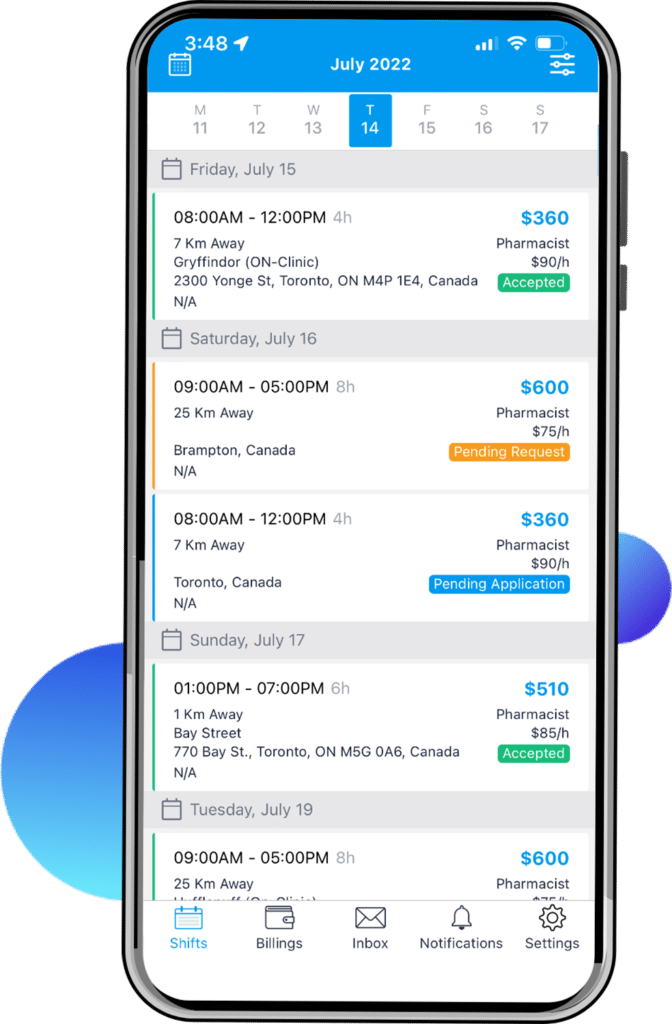The pharmacy profession is incredibly diverse, offering a wide range of career paths and specializations.
Pharmacists can choose to focus on specific areas of practice, tailoring their expertise to better serve patients and communities.
Various pharmacy specializations have their own respective educational requirements. Here’s a guide to help you to find the right path for your career in pharmacy.

Careers in A Variety of Pharmacy Specializations

Clinical Pharmacy
Clinical pharmacists work closely with healthcare providers and patients to optimize medication therapy and promote health, wellness, and disease prevention. They often specialize in specific therapeutic areas, such as cardiology, infectious diseases, or geriatrics, and work in settings like hospitals, clinics, and long-term care facilities.

Nuclear Pharmacy
Nuclear pharmacists specialize in the preparation, dispensing, and quality control of radiopharmaceuticals. These specialized drugs are used for diagnostic imaging and therapeutic purposes. Nuclear pharmacists typically work in centralized nuclear pharmacies, hospitals, or academic institutions.
Oncology Pharmacy
Oncology pharmacists are experts in cancer treatment, focusing on the safe and effective use of chemotherapy and other anti-cancer medications. They work closely with oncologists and other healthcare providers to develop individualized treatment plans, manage side effects, and monitor patients’ response to therapy. Oncology pharmacists can be found in hospitals, cancer treatment centers, and specialty pharmacies.


Pediatric Pharmacy
Pediatric pharmacists specialize in providing medication therapy management for children, from newborns to adolescents. They work with healthcare providers and families to ensure the safe and effective use of medications in this unique population. Pediatric pharmacists may work in hospitals, pediatric clinics, or community pharmacies.

Veterinary Pharmacy
Veterinary pharmacists focus on the medication needs of animals, providing expertise on the safe and effective use of veterinary drugs. They collaborate with veterinarians to optimize medication therapy for pets, livestock, and other animals. Veterinary pharmacists can work in veterinary hospitals, compounding pharmacies, or retail pharmacies that cater to animal health.

Educational and Training Requirements for Each Specialization
In addition to completing a Doctor of Pharmacy (Pharm.D.) degree, pharmacists who wish to specialize typically need to undergo additional training. This can include completing a residency or fellowship program, obtaining board certification in a specific practice area, or pursuing an advanced degree or additional coursework related to their chosen specialization.
Pros and Cons of Pursuing a Pharmacy Specialization
Pros:
- Expertise in a specific area of practice, making you a valuable asset to patients and healthcare providers
- Potential for higher job satisfaction and fulfillment
- May lead to increased job opportunities and higher salaries
Cons:
- Additional time and expense for education and training
- May limit job opportunities to specific settings or geographic location
- Potential for burnout due to the high level of specialization and workload

Tips for Choosing the Right Career Path in Pharmacy

Reflect on your interests and passions:
Reflect on your interests and passions:

Evaluate your strengths and skills
Identify your unique abilities and how they could contribute to a specific pharmacy specialization.

Research each specialization:
Learn about the daily responsibilities, work settings, and educational requirements for each specialization.

Network with professionals in the field:
Connect with pharmacists working in various specializations to gain insights and advice on choosing the right career path.
Your Choice, Your Specialization
Pharmacy specializations offer pharmacists the opportunity to tailor their careers to specific areas of practice, providing focused expertise to patients and healthcare providers. By carefully considering your interests, strengths, and goals, you can choose the right specialization to maximize your impact and satisfaction in the field of pharmacy.
















